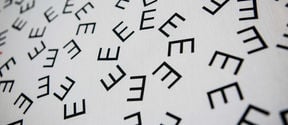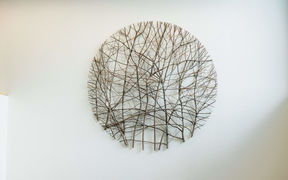Supervision of doctoral studies
Supervision plan, roles and responsibilities, changes of supervision arrangements, research fields and supervising professors at Aalto University, other information and instructions

Use the table of contents above for a quick scan of the contents of this page.
Doctoral student study guide is maintained by the Doctoral education services (Research services). We use the title doctoral student in this guide. The title doctoral researcher is used in employment matters.

Supervision plan, roles and responsibilities, changes of supervision arrangements, research fields and supervising professors at Aalto University, other information and instructions
International mobility is a way to develop your research and build your international network. Mobility may have relevance to future employment prospects but also to developing an international career. Aalto University encourages every doctoral student to spend at least a six months period abroad during their studies.
When you are choosing the destination, your research should be in the foreground. Which universities, conferences or research institutes benefit your research the most? Discuss your options with your supervising professor and/or advisor(s). Professors usually have personal contacts to universities and research institutes abroad.
Mobility is usually financed by external funding: scholarships and grants, as part of a project or an individual fellowship. The funding for long distance destinations must be organized independently. While applying, besides the most obvious organisations, try to find out information of all possible foundations, both national and international. The target country may equally have some scholarships worthwhile applying for.
If you apply within Erasmus+ or Erasmus Global Mobility programme, you are entitled for Erasmus scholarship from Aalto University, which is dictated by the destination and the length of the stay.
Check out the application deadlines for funding well in advance.
What: Visits to universities, research institutes, organisations and industries.
Where to go: Discuss with your supervising professor and/or your advisor(s) about the suitable places for you as they know your research field and should be able to recommend the best option for you. Research visits are not tied to agreements between the universities.
When: There is no definite rule at which stage of a research you should go: it depends on your research and objectives concerning the visit. You agree the timing of your visit period with your supervising professor and the host university.
For how long: The length of the research visit can be anything from one week to several months.
How: Each university has its own system for receiving long-term visitors. Check out their websites and be in contact with their international office and the professors in your field to ask what is the procedure for a research visit. Note that some universities arrange application periods for visiting researchers or scholars.
Important to note: When you go abroad as part of your doctoral education, you need to enroll as an attending student to Aalto University.
What: Course-based studies at partner university of Aalto University, or in some cases, some other university (so called freemover exchange). Usually exchange studies involve both taking courses and advancing your research work.
Where to go? Check from Aalto University's destination database which Aalto's partner universities accept doctoral students. Discuss with your supervising professor and/or your advisor(s) about the suitable places for you. Based on these discussions you may also agree about an exchange to a university that is not partner of Aalto University.
Exchange destinations for Aalto students
When? Exchange periods follow the academic calendar of the host university so the exchange begins usually in the beginning of the academic term/year and ends at the end of the academic term/year.
For how long: The duration of the exchange is from 3 months to 12 months.
How? If you apply within an exchange programme, please check the application periods and instructions (aalto.fi).
Important to note: When you go abroad as part of your doctoral education, you need to enroll as an attending student to Aalto University.
For more information:
Funding for exchange studies
Contact persons for outgoing exchanges at Schools (aalto.fi).
Taking part in international conferences is also one way of including international elements to your doctoral studies and research and a good opportunity to network internationally. Conferences are excellent opportunities to present your research for the international research community and experts around the world and to map possible future post doc places. Feedback received from your presentation or poster will help to improve and proceed your research work and you get to strengthen your presentation skills. To get the most out of the conferences, make both a plan of your aims concerning the each conference participation and a list of those people you are interested in meeting.
If you plan to get credits from a conference presentation, please check that it is possible in the curriculum for your doctoral programme and read more at Individual studies (custom course credit).
If it not possible to go abroad for a longer period during your doctoral studies, short-term international summer and winter schools lasting for one or two weeks are perfect options to network, to get international dimension to your studies and to delve into some specific topic. Even a short period spent abroad discussing with international colleagues can open interesting new viewpoints for deeper understanding of your research field and development of your research.
ARTS: ARTS Grants for short term exchanges (aalto.fi)
Note that you can include studies from other universities in your degree, but credit transfer is only possible if you have received study credits from another university, displayed on a transcript. If you have not received official credits (often in the case of summer schools or seminars), you can include the studies as individual studies, read more at Individual studies (custom course credit).
Doctoral student in the field of ICT may apply to six months researcher exchange at the EIT Digital Doctoral School. EIT Digital Innovation and entrepreneurship (I&E) program for doctoral students in the field of ICT gives knowledge and competences to start new businesses and to launch new products and services. The program is composed of four intensive courses, six months’ researcher exchange and six months’ business development experience. All doctoral students accepted to Aalto University that are in the starting phase of their studies can apply. Please contact your supervising professor to enquire if the courses could be part of your doctoral studies.

Doctoral students plan their studies and research by using the five parts of the DPSP.

Find courses for doctoral students & information about individual studies and credit transfer.

Resources, guidelines and information on doctoral theses at Aalto University

Find resources to improve your skills related to data management, research ethics, IPR, dissemination of results and more!

A set of 500e and 2000e incentive scholarships are awarded by application for doctoral students who meet the conditions given.

Ideas and advice for finding and applying for funding for doctoral studies and research, conferences etc.
The following feedback is collected from doctoral students:
In addition, you are asked to give feedback for the teacher on each course you take. Your doctoral programme may also ask you to participate in their feedback events or surveys.
The primary target degree for our postgraduate students is the doctoral degree and new students are only admitted to study towards the doctoral degree. However, in the fields of technology and business it is still possible to complete a licentiate degree. We recommend that option in cases where the student and the supervising professor estimate that completing a doctoral thesis is not feasible for one reason or another. Licentiate degree is a way of demonstrating the competences you have acquired during your postgraduate studies, even if you would not be completing a doctoral degree.
Student who aim at a licentiate degree must also have an up-to-date Doctoral Personal Study Plan (DPSP) and studies are confirmed with the same process as when completing the doctoral degree.
A licentiate thesis shall demonstrate good conversance with the field of research and the capability of independently and critically applying scientific research methods.
The research topic of the licentiate thesis is related to the research field of the doctoral student and has been agreed with the supervising professor before starting the thesis.
When the thesis is ready for examination the student requests for confirmation of licentiate thesis topic, language, supervisor, thesis advisor and examiner and examination of licentiate thesis.
The application includes the following:
*The licentiate thesis shall include one or two abstracts: one abstract in English and another one in Finnish or Swedish if the author has received his/her high school education in Finland.
Send the application to your School's Doctoral education services.
The licentiate thesis is examined by an independent examiner (CHEM: two examiners). The examiner cannot be from the Aalto University. The examiner must hold at least a licentiate's degree, and they are to present their own, independent evaluation of the thesis. The examiner cannot have a too close relation to the author of the thesis, supervising professor or thesis advisor, so that there will be no doubts of partiality.
The student shall not take part in selecting the examiners; however they have a chance to make a remark on the selection. Before the examiner is appointed, the supervising professor must confirm that they agree to do the examination according to the schedule.
After processing the application and upon its approval by the Doctoral Programme Committee, the Doctoral Programme sends the licentiate thesis manuscript to the examiner(s). The examiner is asked to give their statement within four weeks (SCI 1.8.2024 onwards, until then 6 weeks; BIZ and ARTS 6 weeks).
When the examiner's statement arrives, the Doctoral Programme sends the statement to the doctoral student and supervising professor. The doctoral student has up to one year to make the necessary corrections.
The doctoral student sends the corrected licentiate thesis and the clarification of the corrections to the supervising professor, who checks the corrections that have been made.
After the supervising professor has accepted the clarification and the corrected thesis, they will send a short statement of this to the Doctoral Programme. In the statement the supervising professor states that the necessary corrections have been made and that the thesis is ready to be published. If the examiner does not suggest any corrections, the supervising professor will state in the statement that the thesis is ready to be published.
The licentiate thesis is presented at the department. After the presentation the supervising professor sends a freely formulated email to the Doctoral Programme with confirmation of the presentation.
Licentiate theses are published electronically at Aaltodoc. Electronic long-term preservation and open access publishing of licentiate theses is taken care of using an electronic form. The licentiate thesis is a public document; however, in the electronic form you can decide on the degree of publicity of your full-text thesis (PDF/A file. Please, follow these instructions to convert a file to PDF/A.) when depositing the file in the archive. You can find more information (incl. what degree of publicity means, how and where the thesis is deposited etc.) on the electronic form.
Learning Centre will publish your thesis at Aaltodoc and helps you with all the necessary permissions needed for electronic publishing.
You can use the Aalto doctoral thesis templates in the contents section of your licentiate thesis, but please note that Aalto Publication Platform should not be used for the licentiate thesis. Cover of the licentiate thesis should be similar to theses published at Aaltodoc.
Approval of licentiate thesis can be applied for from the Doctoral Programme Committee (contact the Doctoral Services of your School) after the licentiate thesis has been published electronically at Aaltodoc. Please check the deadlines for applications from the page of your own doctoral programme.
The Doctoral Programme Committee decides on the approval of the licentiate thesis. The Committee shall evaluate the licentiate thesis based on the written statement of the examiner and other possible written statements, comments or official replies. Grades used when evaluating the licentiate thesis are pass and fail. For the Licentiate of Science (Architecture) the grades for evaluating the thesis are pass with distinction, pass and fail.
After the licentiate thesis has been approved at the Doctoral Programme Committee and the student has applied for graduation in Sisu, the Dean will award the degree if all the required studies have been completed and doctoral student has enrolled as present at the university. The licentiate degree diploma entitles to the title of
Submit the graduation request through your study plan on Sisu. Your graduation request on Sisu should be based on your up-to-date primary study plan towards a licentiate degree. Please note that you must be enrolled as an attending student on your graduation day.
Look at instructions how to request for graduation
Graduation request must be filled at once, it is not possible to stop, save and continue later on. After sending the graduation request you can cancel your request for graduation, edit it or resubmit it if you need to. You can cancel or edit your request for graduation while its status is requested. If the status is in progress, you cannot cancel the request.
Studies after licentiate degree
Normally postgraduate studies are not continued after completing a licentiate degree - if you plan to study towards a doctoral degree, you are not required to complete a licentiate degree in between. However, if after completing a licentiate degree your plans change and you would wish to continue to study towards a doctoral degree, first discuss with your supervising professor about your plans. You don't need to submit a separate application, but you need to remember to keep enrolling to the university in order to not lose your study right.
After licentiate degree, you are very welcome to keep your skills and knowledgre up-to-date with Aalto University Lifewide Learning at lifewidelearning.aalto.fi.
Index of all aalto.fi pages about doctoral education


Doctoral students at the beginning of studies: information on arrival, doctoral personal study plan, curriculum and financing etc.

Doctoral students throughout their studies: information on thesis writing, research work, supervision and mobility etc.

Information for doctoral students on pre-examination, defence, finalising the thesis, public display etc. Previously called: Finalising your doctoral thesis.